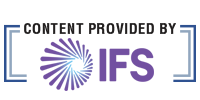
The construction industry has long been challenged by a number of inefficiencies. As countries across the world look to stimulate their economies into recovery, investment in infrastructure and construction projects is at the forefront for many—meaning now is the time for construction companies to face and resolve their inefficiencies.
From ourkey trends in the industry for 2021 and we noted that increasing productivity is still one of the major hurdles that the industry needs to overcome. However, while there is no one-size-fits all to resolving this, there are some general themes that can be adopted by all who are ready to transition to a more dynamic, agile and profitable construction company which is centered around the adoption of best practices.
Many construction companies agree best practice processes are key to ensuring the continuity of their business, but there is often an initial question around why is this? At the highest level best practice, “is a method or technique that has been generally accepted as superior to any alternatives . . . produces results that are superior… or has become a standard way of doing things.” In applying best practice to the construction industry, we are asking how can we deliver a project on time, on budget and at a high quality?
THE 3 STEPS TO SUCCESSFUL CONSTRUCTION TRANSFORMATION
There are three steps to a successful construction business transformation, your organization’s focus will determine the depth of your requirements, but in essence they are:1. IMPROVE CONTROL
You need to understand how you can become more agile, increase visibility and gain actionable insights from your operations. With control comes the ability to better manage your operations and therefore the difference between profit and loss. The way forward is to eliminate the fragmented, multi-layered, disconnected business system architectures that are all too common and instead establish a single view with one version of truth. This will enable better project delivery performance, improved margins, increased productivity, better customer satisfaction rates and the ability to deliver a positive moment of service.2. MODERN METHODS OF CONSTRUCTION
While not relevant for all construction companies, for those who can embrace these new ways of working, offsite manufacturing, precasting and modular construction are great ways to iron out a number of commonplace inefficiencies. Fundamentally they allow you to operate in a more controlled environment that allows for a greater level of accuracy, utilizes more repeatable processes that reduce cost and improve speed and allow for more actionable insights as to how further improvements could be made.3. DIGITIZE
Finally look at how digital solutions can be introduced that will further improve operations and maximize profitability. As with modern methods of construction, for some these are not applicable, but where possible, Building Information Modelling (BIM), AI, Robotics, Internet of Things (IoT) and more can alleviate some of the long term challenges within the industry such as labor constraints, accurate project estimates and delivering first-time success.
DELIVERING A POSITIVE EXPERIENCE WITH IFS CLOUD
The three driving themes outlined above should be core to any transformation strategy and are all built around the idea of adopting best practice processes that provide clear, tangible benefits. IFS Cloud for Construction, launched in March, follows this outline—with best practice processes embedded as standard.However, this single solution which can deploy in the cloud or on-premise with no differences in user experience has one additional benefit which is often overlooked within the construction industry. IFS Cloud enables users to deliver a positive moment of service to delight customers—more crucial than ever as new market entrants and the impact of globalization continue to rock the construction market.
For more information, download the interactive IFS Cloud for construction eBook.



Post a comment to this article
Report Abusive Comment